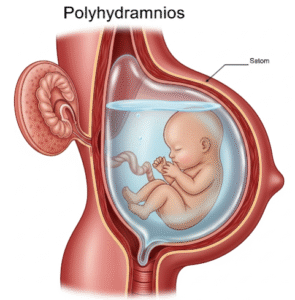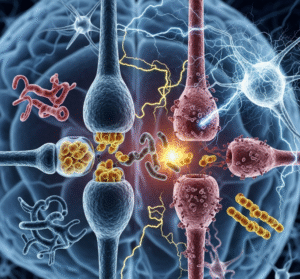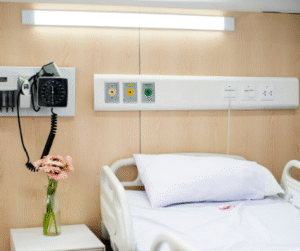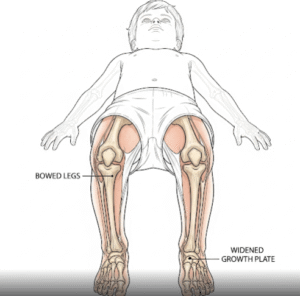Overview
Disorientation is a state of mental confusion in which a person is unaware of time, place, or identity, and may have difficulty recognizing surroundings or making decisions. It is a common symptom in various medical conditions, ranging from acute illnesses like infections or head injuries to chronic neurological disorders. In Korea, hospitals and specialized clinics provide advanced diagnostic tests, treatment, and rehabilitation to address disorientation and its underlying causes.
Key Facts
▶ Prevalence: Disorientation is more common in older adults, individuals with cognitive impairments, or those experiencing acute medical conditions.
▶ Causes: Neurological disorders, infections, metabolic imbalances, medications, or psychiatric conditions.
▶ Associated Symptoms: Confusion, memory loss, agitation, dizziness, altered behavior, and difficulty communicating.
▶ Treatment Options in Korea: Medications, cognitive therapy, supportive care, and rehabilitation programs.
▶ Urgency: Sudden or severe disorientation requires immediate medical evaluation to rule out life-threatening conditions.
What is Disorientation?
Disorientation refers to the inability to correctly perceive or recognize oneself, time, place, or surroundings. It can be temporary or chronic, depending on the underlying cause.
▶ Temporal Disorientation: Confusion about the date, time, or sequence of events.
▶ Spatial Disorientation: Difficulty understanding or navigating one’s environment.
▶ Personal Disorientation: Inability to recognize oneself or familiar people.
▶ Situational Disorientation: Confusion about the context or events occurring around the individual.
Note: Disorientation is often a warning sign of underlying health issues and should not be ignored.
What Symptoms Are Related to Disorientation?
▶ Confusion: Difficulty thinking clearly or processing information.
▶ Memory Problems: Short-term memory loss or inability to recall recent events.
▶ Difficulty Communicating: Trouble speaking, finding words, or understanding instructions.
▶ Agitation or Restlessness: Behavioral changes due to confusion.
▶ Dizziness or Vertigo: Frequently accompanying neurological causes.
▶ Altered Consciousness: Ranging from mild lethargy to stupor.
▶ Hallucinations or Delusions: Possible in severe disorientation or psychiatric conditions.
▶ Impaired Judgment: Difficulty making decisions or recognizing danger.
What Causes / Possible Causes
Disorientation can result from multiple medical, neurological, or psychological factors:
▶ Neurological Disorders: Stroke, transient ischemic attacks (TIA), dementia, Alzheimer’s disease, Parkinson’s disease, or brain tumors.
▶ Infections: Urinary tract infections, sepsis, meningitis, or encephalitis.
▶ Metabolic Imbalances: Hypoglycemia, electrolyte disturbances, dehydration, or liver/kidney dysfunction.
▶ Medications: Sedatives, narcotics, anticholinergics, or polypharmacy in older adults.
▶ Head Trauma: Concussion, brain injury, or post-surgical effects.
▶ Psychiatric Disorders: Severe anxiety, psychosis, or depression.
▶ Environmental Factors: Sleep deprivation, sensory overload, or isolation.
▶ Substance Use: Alcohol, recreational drugs, or withdrawal syndromes.
Note: Determining the exact cause is crucial for targeted treatment and prevention of complications.
When Should I See a Doctor?
▶ Sudden Onset: Rapid confusion or loss of awareness, especially in older adults.
▶ Severe Symptoms: Inability to recognize people, places, or oneself.
▶ Accompanying Neurological Signs: Weakness, speech difficulties, vision changes, or seizures.
▶ Medical Emergency Indicators: Chest pain, severe headache, fever, or vomiting.
▶ Persistent or Chronic Disorientation: Ongoing cognitive changes requiring evaluation.
▶ Medication or Substance Concerns: If disorientation may be drug-induced.
▶ Children or Vulnerable Adults: Rapid changes in behavior or awareness require urgent attention.
Tip: In Korea, hospitals provide emergency evaluation, neurological assessment, and specialized care for patients presenting with disorientation.
Care and Treatment
Management of disorientation focuses on addressing the underlying cause, stabilizing the patient, and providing supportive care:
▶ Medical Stabilization: Treat infections, correct metabolic imbalances, and manage acute illnesses.
▶ Medications: Adjust or discontinue drugs causing disorientation; use appropriate therapy for neurological or psychiatric conditions.
▶ Cognitive Therapy: Supportive strategies to improve memory, orientation, and functioning.
▶ Environmental Support: Calm, structured surroundings with clear cues and orientation aids.
▶ Hydration and Nutrition: Essential for metabolic balance and cognitive function.
▶ Monitoring: Continuous observation to prevent falls, injuries, or further complications.
▶ Rehabilitation: Physical, occupational, or speech therapy for patients with neurological deficits.
Treatment Options in Korea
Medical Evaluation:
▶ Neurological Assessment: MRI, CT scans, EEG, or cognitive testing.
▶ Laboratory Tests: Blood tests for electrolytes, glucose, liver and kidney function, and infections.
▶ Specialist Consultation: Neurologists, psychiatrists, or geriatric specialists for comprehensive care.
▶ Medication Review: Evaluate for drugs that may cause confusion or disorientation.
Advanced Therapies:
▶ Cognitive Rehabilitation Programs: Target memory, orientation, and executive function.
▶ Pharmacological Treatment: Medications for underlying neurological or psychiatric conditions.
▶ Multidisciplinary Care: Coordination among physicians, nurses, therapists, and social workers.
▶ Assistive Technologies: Memory aids, visual cues, and monitoring devices to support independent living.
Rehabilitation & Support:
▶ Patient and Caregiver Education: Guidance on recognizing triggers, preventing injuries, and supporting cognitive health.
▶ Follow-Up Care: Regular assessments to monitor recovery and prevent recurrence.
▶ Specialist Clinics: Korean hospitals provide integrated care combining diagnostics, therapy, and long-term support for disoriented patients.
Outcome: With early recognition and comprehensive treatment in Korea, disorientation can be managed effectively, improving cognitive function, safety, and overall quality of life.













